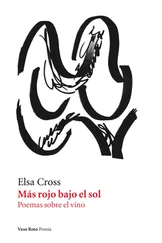Francis Newman - Rebilius Cruso - Robinson Crusoe, in Latin; a book to lighten tedium to a learner
Здесь есть возможность читать онлайн «Francis Newman - Rebilius Cruso - Robinson Crusoe, in Latin; a book to lighten tedium to a learner» — ознакомительный отрывок электронной книги совершенно бесплатно, а после прочтения отрывка купить полную версию. В некоторых случаях можно слушать аудио, скачать через торрент в формате fb2 и присутствует краткое содержание. Жанр: foreign_antique, foreign_prose, на латинском языке. Описание произведения, (предисловие) а так же отзывы посетителей доступны на портале библиотеки ЛибКат.
- Название:Rebilius Cruso: Robinson Crusoe, in Latin; a book to lighten tedium to a learner
- Автор:
- Жанр:
- Год:неизвестен
- ISBN:нет данных
- Рейтинг книги:4 / 5. Голосов: 1
-
Избранное:Добавить в избранное
- Отзывы:
-
Ваша оценка:
- 80
- 1
- 2
- 3
- 4
- 5
Rebilius Cruso: Robinson Crusoe, in Latin; a book to lighten tedium to a learner: краткое содержание, описание и аннотация
Предлагаем к чтению аннотацию, описание, краткое содержание или предисловие (зависит от того, что написал сам автор книги «Rebilius Cruso: Robinson Crusoe, in Latin; a book to lighten tedium to a learner»). Если вы не нашли необходимую информацию о книге — напишите в комментариях, мы постараемся отыскать её.
Rebilius Cruso: Robinson Crusoe, in Latin; a book to lighten tedium to a learner — читать онлайн ознакомительный отрывок
Ниже представлен текст книги, разбитый по страницам. Система сохранения места последней прочитанной страницы, позволяет с удобством читать онлайн бесплатно книгу «Rebilius Cruso: Robinson Crusoe, in Latin; a book to lighten tedium to a learner», без необходимости каждый раз заново искать на чём Вы остановились. Поставьте закладку, и сможете в любой момент перейти на страницу, на которой закончили чтение.
Интервал:
Закладка:
Daniel Defoe
Rebilius Cruso: Robinson Crusoe, in Latin; a book to lighten tedium to a learner
This book was composed when the writer was a Professor of Latin, as part of a larger scheme. He has long been convinced that the mode of teaching Latin has become less and less effective in proportion as it has been made more and more scientific. The effort has been general to confine the pupil to the most elaborate styles and the most approved classics, and the exercise of memory has been superseded by minute accuracy in the study of very limited pieces. In the natural mode we have enormous endless repetition and much learning of the names of things. We begin with short sentences and a very limited number of verbs; and we learn with the least possible number of rules . If we could talk in Latin, that would be of all best; but as we cannot get exercise in talking it for practical needs, no teacher can hope to gain adequate readiness and facility: or if a few might, yet this could not be counted on in any general system. It has long been my conviction that we ought to seek to learn a language first , and study its characteristic literature afterward . Greek and Latin literature plunge us into numerous difficulties all at once, inasmuch as their politics, their history, their geography and their religion are all strange to the young student. To take difficulties one by one is obvious wisdom; and with a view to this I elaborately maintained in an article of the Museum (No. iv., Jan., 1862, Edinburgh) that we ought to teach by modern Latin. As parts of such a system I have executed and published a Latin “Hiawatha,” and Latin Verse Translations of many small pieces of English poetry. If I could write Latin conversations that would interest learners , I should gladly have undertaken this: but when I tried, I could not invent matter that seemed interesting enough. This indeed is my objection to Erasmus’s “Colloquies,” which also are not easy enough in idiom to satisfy me. This “Robinson Crusoe” I thought I could make very interesting, and it includes a far greater variety of vocabulary than can be obtained from any of our received classics of the same length. I hope also the style is easy.
I surely need not apologize for taking only the general idea from Defoe. His tale is far too diffuse, too full of moralizing and with too little variety. He was very ignorant of the Botany and Zoology of the tropics, and when his tale is faithfully abridged, its impossibilities become too glaring. The Arabic “Robinson Crusoe” published by the Church Missionary Society cuts down Defoe’s story unmercifully.
I am indebted to my former colleague, the late Professor T. Hewitt Key, for the translation of Robinson into the name Rebilius. He also approved of Ignipulta for a gun , not as strictly grammatical, but as good enough to pass with Latins who were familiar with the word Catapulta. From him also I adopted Cannones, for cannons , and Pistola a pistol . The word Canna, a cane (or hollow tube) seems to be the root of Cann̄on, a tube or cannon , in Spanish, whence the American can̄on for a tunnel, or larger tube.
After I had executed my own Rebilius (finally completed in 1861), I learned that a Frenchman, Goffaux, had published a “Robinson Crusoe” in Latin and French. On discovering this, I stopped the printing which I had begun, and after some delay succeeded in getting the book. But on perusing it I found his principles of remodelling the tale to be fundamentally the opposite of mine, concerning which I need not enlarge. I like his Latin, yet do not think his book supersedes mine. But if teachers can practically use his with advantage, I shall be well satisfied.
I wish here to renew my protest, that no accuracy of reading small portions of Latin will ever be so effective as extensive reading; and to make extensive reading possible to the many, the style ought to be very easy and the matter attractive. To enable us to talk, we ought to have a vocabulary that includes all familiar objects, – which the Classics of our schools cannot give us. Terence, though somewhat too difficult, would have great excellencies for the learner; but the substance of his plays is low, and eminently unedifying.
In the near future, some universal tongue will be sought for by the educated. If Latin be still learned in England, France, Italy, Germany, Hungary, Spain, this is still, as three centuries ago, the best for all Christendom. But perhaps even Latin will be beaten out of the schools.
It may be well to remark, that inasmuch as the grave accent has been very widely used in school books as indicative of an adverb , I adopt the mark in this sense; and think it no objection to say that the Latins never so used it. Neither had they our stops. We do not pretend to follow their writing in detail. We usefully distinguish the vowels u i from the consonants v j; they did not. What should we gain, by writing the Iliad as its author wrote it? So too, I think it well occasionally to add long or short marks, as ēgēre ĕgēre ēgĕre, vēnēre vĕnĕre, lătēre lătĕre lātere, to obviate ambiguity. Nay I write fluctûs for gen. sing., fluctūs for plural, but fluctus for nomin. sing. When et means both or even , I set an acute accent over it, not doubting that it then received some emphasis.
I also borrow from the marks used in Hebrew an under -parenthesis for coupling words that are in grammatical union. This mark is often very effective in explaining the structure of complicated Greek sentences.
CAPUT PRIMUM
1. Natus sum ego Eboraci, ex bonâ familiâ, sed peregrinâ: quippe pater meus Germanus fuit e Bremâ, ubi appellabatur Kreutznaer. Ceterùm per mercaturam dives factus, Eboraci consedit, unde recepit in connubium matrem meam. Ex hujus agnatis praenomen mihi Rebilius, ex patre nomen Kreutznaer inditum est. Sed vulgus hominum, facili corruptelâ, Crusonem me Rebilium appellabat. Tertius eram filius familiae. Frater maximus, tribunus militum, cum Hispanis praelio congressus, ad Dunquercam occubuit. Frater proximus, sicut ego quoque postea, incertum quomodo, evanuit. Me quidem pater, diligenter institutum, juris legumque studiis destinabat: sed, fatali quodam motu, nihil mihi arridebat, nisi ut mari oberrarem.
2. Primâ in juventâ clam patrem évasi nauta. Cursu mox felici cum magistro navis humanissimo ad Guineam Africae navigavi. Altero in cursu a Mauris piratis captus sum, et per quatuor fere annos duram servivi servitutem. Inde miraculo audaciae elapsus, in Lusitanâ quâdam navĕ ad Braziliam sum devectus, ubi colono cuidam tres ampliùs annos strenuam operam navavi, praefectus servorum agrestium. Mox per hunc amicosque hujus adductus sum, ut ad Guineam navigarem, homines nigritas conquisiturus, quos ipsi inter se per sua praedia servitutis causâ dividerent. Equidem magnam lucri partem eram derivaturus.
3. Sed longe aliter ordinavit Deus, ne impune caecae cupiditati obsequerer. Nempe ventis abrepta navĭs Oceanum transire nequibat, sed longe ad Caurum devehitur, circa Orinoconis ostia, ut credebamus. Altera mox superveniens procella magno impetu nos in Occidentem propulit, ubi, si e mari effugeremus, per feros homines foret pereundum.
4. Gravi impendente periculo, nocte intempestâ et saeviente adhuc vento, nauta qui erat in vigiliâ “terram adesse” exclamavit; atque, antea quàm ceteri experrecti superne congregamur, navĭs in arenis haeret. Stătim cum strepitu tremendo corruunt māli eorumque armamenta. Fluctūs magnâ vi foros proluebant, neque ipsae navĭs compages diu toleraturae videbantur. 5. Magister scapham demitti jubet. Demittitur: nec facilè id quidem. Res, quae maxime ad vitam sunt necessariae, raptim ingerunter; tum nos ipsi, tredecim viri, in eandem descendimus. Montosum littus inter sublustrem caliginem furvum apparebat: eò remigamus, si qua fortè in sinu terrae reducto tranquilliore mari utamur. Jam, violenter undante salo et circum nos se frangente, res non nauticae peritiae sed divinae opis videbatur: quare inter remigandum se quisque Deo Supremo, pius impiusve, commendabat, salute paene desperatâ. 6. Ventus, ad terram propellens, cursum scaphae accelerabat, terram faciebat formidolosiorem; metu autem maris, spe littoris, ipsi nosmet quasi in certissimum exitium detrudebamus. Tandem, vadosiore mari, fluctūs perniciosius circumfringi et dejectari scapha. Mox, ecce crista undae ingens, quae nos persequitur; et vix Dei effamur nomen, quum cuncti sumus absorpti.
Читать дальшеИнтервал:
Закладка:
Похожие книги на «Rebilius Cruso: Robinson Crusoe, in Latin; a book to lighten tedium to a learner»
Представляем Вашему вниманию похожие книги на «Rebilius Cruso: Robinson Crusoe, in Latin; a book to lighten tedium to a learner» списком для выбора. Мы отобрали схожую по названию и смыслу литературу в надежде предоставить читателям больше вариантов отыскать новые, интересные, ещё непрочитанные произведения.
Обсуждение, отзывы о книге «Rebilius Cruso: Robinson Crusoe, in Latin; a book to lighten tedium to a learner» и просто собственные мнения читателей. Оставьте ваши комментарии, напишите, что Вы думаете о произведении, его смысле или главных героях. Укажите что конкретно понравилось, а что нет, и почему Вы так считаете.












